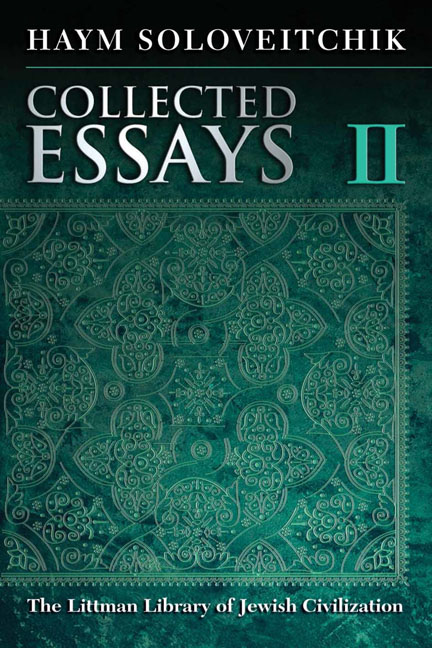Book contents
- Frontmatter
- Dedication
- Preface
- Acknowledgments
- Contents
- Note on Transliteration and Conventions Used in the Text
- PART I RE-EVALUATION OF ELEVENTH-CENTURY ASHKENAZ
- PART II MARTYRDOM UNDER CROSS AND CRESCENT INTRODUCTION
- PART III MISHNEH TORAH
- Bibliography of Manuscripts
- Source Acknowledgments
- Index of Names
- Index of Places
- Index of Subjects
10 - Between Cross and Crescent
- Frontmatter
- Dedication
- Preface
- Acknowledgments
- Contents
- Note on Transliteration and Conventions Used in the Text
- PART I RE-EVALUATION OF ELEVENTH-CENTURY ASHKENAZ
- PART II MARTYRDOM UNDER CROSS AND CRESCENT INTRODUCTION
- PART III MISHNEH TORAH
- Bibliography of Manuscripts
- Source Acknowledgments
- Index of Names
- Index of Places
- Index of Subjects
Summary
IN THIS BRIEF ESSAY I pointed to one reason for the differing self-images of the Jews of Christian Spain and those of Islamic countries when confronted with mass conversion on the par t of their communities. Avraham Grossman then incorporated this insight into a more comprehensive explanation. The issue has recently been revisited and cast in a new light in an essay by Menahem Ben-Sasson.
BOTH THE JEWS in Christian Spain and those of Islamic countries experienced religious persecution. Though the tenets of both Islam and Christianity forbade conversion by force, religious zealotry and political advantage occasionall y converged and resulted in sustained attempts to compel mass conversion by the threat of death or exile. Many Jews willingly paid the price of their beliefs and, at times, entire communities were wiped out because they refused to renounce their God. A large number of Jews did, however, convert; indeed, sometimes the majority of the Jewish population went over to the other faith. S o it fell in Spain in the ‘great persecution’ of 1391 and again in the expulsion of 1 492; it happened equally in mid-twelfth-century Maghreb under the Almohads, and again in Yemen in the latter half of the twelfth centur y.
The common phenomenon of mass conversion elicited, however, radically different responses. In Spain, the large-scale defection of both the common folk and the religious and cultural elite shattered the community's self-image, broke its pride, and generated a constant, corrosive brooding over why it had been unequal to the challenge and betrayed its covenant with God. In one sense one might say that Iberian Jewry and its diaspora, together with its historiography, have never fully recovered from the trauma of mass conversion. In Islamic countries, however, nothing of the sort occurred. No doubt, many were racked with guilt and wrestled with a heavy conscience. However, these feelings produced no outpouring of self-criticism or self-examination, no pained inner reckoning with their deepest beliefs. Quite the contrary: rather than self-laceration, we find encouragement and solace—to the extent that their emotions assumed written form, the literature they produced is that of consolation.
- Type
- Chapter
- Information
- Collected EssaysVolume II, pp. 223 - 227Publisher: Liverpool University PressPrint publication year: 2014



